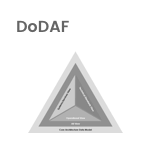API Management
APIs (Application Programming Interfaces) are the basis of the digital economy. They enable an organisation’s products and capabilities to be published for both external and internal use. Through this organisational APIfication, we improve internal processes while speeding up and simplifying multi-channel strategies, for digital product design and new business model creation.
Leading solutions
in the market
Cloud + OnPremise
You decide
Opening business
securely

Main advantages Reliability Stability Quality Efficiency
APIs represent the agility of the business in a changing environment in which the future cannot be predicted, but we can protect ourselves from its uncertainty
We live surrounded by APIs. On any level of our information system. We use them to improve and enhance our applications, they are provided by our partners so that we can integrate into them, we provide them so that they can use them…
We believe that with the right approach, APIs are fundamental for empowering employees and business lines, fostering the democratisation of IT, an aspect that also applies to partners and customers, allowing for the creation of new applications, services and business models.
Moreover, by launching APIs in the market, we want to make sure their reliability, stability and quality live up to the company’s business, as this is an extension of its image.
Through APIs, we turn the Internet into the platform for business, enabling models not even imagined at the time of their implementation, and enabling third parties to integrate them into their applications and devices, thus increasing the number of users and customers.

APIs make software a competitive advantage
These APIs are digitally designed to be used in an agile, reliable, secure and monetised context. This monetisation of APIs and their product orientation greatly simplifies the creation and implementation of digital products and services, creating a kind of virtual API economy.
We protect APIs to enhance their use in a secure digital context, providing an ecosystem of collaboration and productivity
Tools are not everything… but we prefer to use the best.






Contact with Babel
Chile
Santiago de Chile
Colombia
Bogotá
Costa Rica
San José, San Pablo
Spain
Almería
Barcelona
Madrid
Málaga
Oviedo
Sevilla
Zaragoza
Morocco
Casablanca
México
México City
Panamá
Panamá City
Portugal
Ilha Terceira (Azores)
Lisboa
Proença-a-Nova
Dominican
Republic
Santo Domingo
